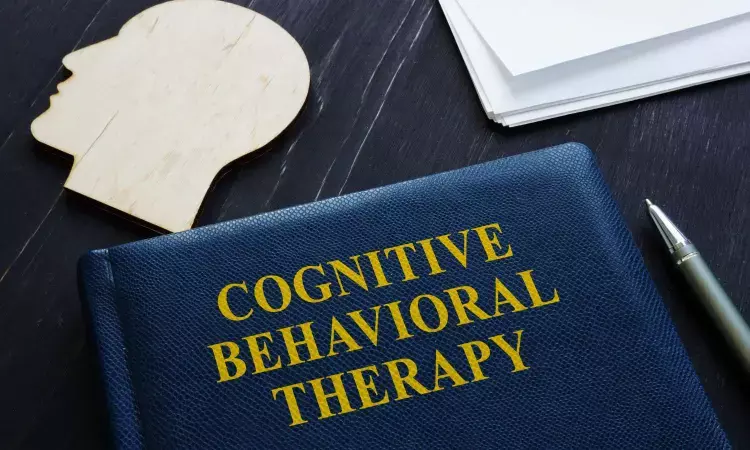- Home
- Medical news & Guidelines
- Anesthesiology
- Cardiology and CTVS
- Critical Care
- Dentistry
- Dermatology
- Diabetes and Endocrinology
- ENT
- Gastroenterology
- Medicine
- Nephrology
- Neurology
- Obstretics-Gynaecology
- Oncology
- Ophthalmology
- Orthopaedics
- Pediatrics-Neonatology
- Psychiatry
- Pulmonology
- Radiology
- Surgery
- Urology
- Laboratory Medicine
- Diet
- Nursing
- Paramedical
- Physiotherapy
- Health news
- Fact Check
- Bone Health Fact Check
- Brain Health Fact Check
- Cancer Related Fact Check
- Child Care Fact Check
- Dental and oral health fact check
- Diabetes and metabolic health fact check
- Diet and Nutrition Fact Check
- Eye and ENT Care Fact Check
- Fitness fact check
- Gut health fact check
- Heart health fact check
- Kidney health fact check
- Medical education fact check
- Men's health fact check
- Respiratory fact check
- Skin and hair care fact check
- Vaccine and Immunization fact check
- Women's health fact check
- AYUSH
- State News
- Andaman and Nicobar Islands
- Andhra Pradesh
- Arunachal Pradesh
- Assam
- Bihar
- Chandigarh
- Chattisgarh
- Dadra and Nagar Haveli
- Daman and Diu
- Delhi
- Goa
- Gujarat
- Haryana
- Himachal Pradesh
- Jammu & Kashmir
- Jharkhand
- Karnataka
- Kerala
- Ladakh
- Lakshadweep
- Madhya Pradesh
- Maharashtra
- Manipur
- Meghalaya
- Mizoram
- Nagaland
- Odisha
- Puducherry
- Punjab
- Rajasthan
- Sikkim
- Tamil Nadu
- Telangana
- Tripura
- Uttar Pradesh
- Uttrakhand
- West Bengal
- Medical Education
- Industry
Short CBD interventions also bring down anxiety among kids

Anxiety disorders are highly prevalent psychological disorders among children. Anxiety negatively affects a child's sense of self-esteem, leading to under-achievement in school. Moreover, anxiety may exacerbate low self-esteem in children who already experience it. This increases their likelihood of avoiding socialization, indulging in negative interactions with their peers, and remaining absent from classes. If left untreated, anxiety can lead to severe psychological disorders over time. To remedy this, a preventive intervention based on Cognitive Behavioral Therapy (CBT) for children-'Journey of the Brave'-was developed and introduced in Japanese schools in 2014.
While the program was somewhat effective, each CBT session took 45 minutes to complete over a span of 10 weeks, during which the regular class time was lost. In Japan, school going children have busy schedules due to a packed school curriculum, and it is quite difficult to set time aside for a preventive program.
Recently a team of researchers led by Dr. Yuko Urao-a Specially Appointed Lecturer at the Research Centre for Child Mental Development, including Dr. Eiji Shimizu and Ms. Michiko Yoshida from the Graduate School of Medicine, Chiba University, and Dr. Yasunori Sato from Keio University School of Medicine, Japan developed a streamlined and shorter version of the Journey of the Brave CBT-program. Their findings were published online on October 25, 2022, in Volume 22 of BMC Psychiatry.
"The effectiveness of the CBT-based anxiety prevention program "Journey of the Brave", aimed at Japanese higher-grade elementary school children has been confirmed by previous studies. But to implement and spread it on a large scale was problematic due to difficulties in securing extensive class time of ten 45-minute-long sessions," said Dr. Urao while discussing the motivation behind the study.
The team spent 14 weeks and designed the sessions to only last for 20 minutes. They conducted them during the homeroom activity time in the morning instead of after school hours, for children aged 10–11 of a Japanese school. This age group was targeted since children of these ages experience class shuffle and tend to take on new responsibilities as school or class leaders.
Further, the children were divided into control and intervention groups, with the former not attending any CBT-based sessions. The team assessed the children at the pre-intervention and post-intervention stages, as well as during a 2-month follow-up period. Their anxiety-based symptoms were measured using the Spence Children's Anxiety Scale (SCAS), and the behavioral problems were measured using the Strengths and Difficulties Questionnaire (SDQ).
The findings suggested a statistically significant reduction in the SCAS scores during the 2-month follow-up period, as well as a reduction in the SDQ scores. These findings suggest that the children benefitted from the CBT-based program when it was delivered in a short and divided format.
"Since this version of the program is shorter, a greater number of schools will be able to implement it. In addition, the greater number of schools participate, the more teachers will be able to focus on children's anxiety. Moreover, it will lead to an improved school environment where children will retain their peace of mind." Dr. Urao said while discussing the findings.
Why is it important to prevent symptoms of anxiety of schoolchildren? Dr. Urao muses, "When CBT-based anxiety prevention programs prevail and help children learn self-control over their anxious feelings, their mental-health related problems will decrease, allowing them to grow to their full potential."
Reference:
Urao, Y., Yoshida, M., Sato, Y. et al. School-based cognitive behavioural intervention programme for addressing anxiety in 10- to 11-year-olds using short classroom activities in Japan: a quasi-experimental study. BMC Psychiatry 22, 658 (2022). https://doi.org/10.1186/s12888-022-04326-y
Dr Kamal Kant Kohli-MBBS, DTCD- a chest specialist with more than 30 years of practice and a flair for writing clinical articles, Dr Kamal Kant Kohli joined Medical Dialogues as a Chief Editor of Medical News. Besides writing articles, as an editor, he proofreads and verifies all the medical content published on Medical Dialogues including those coming from journals, studies,medical conferences,guidelines etc. Email: drkohli@medicaldialogues.in. Contact no. 011-43720751


